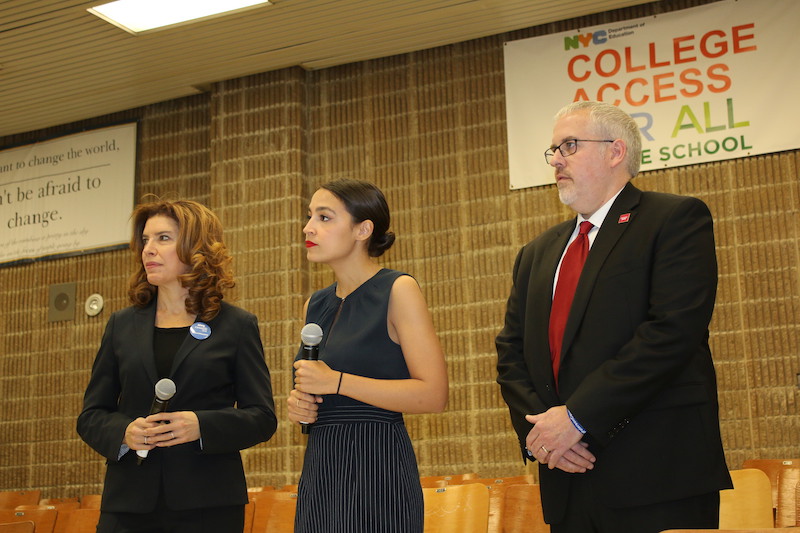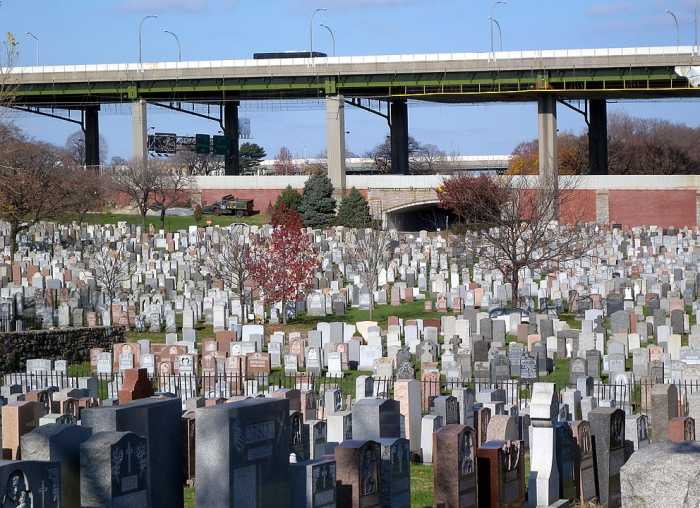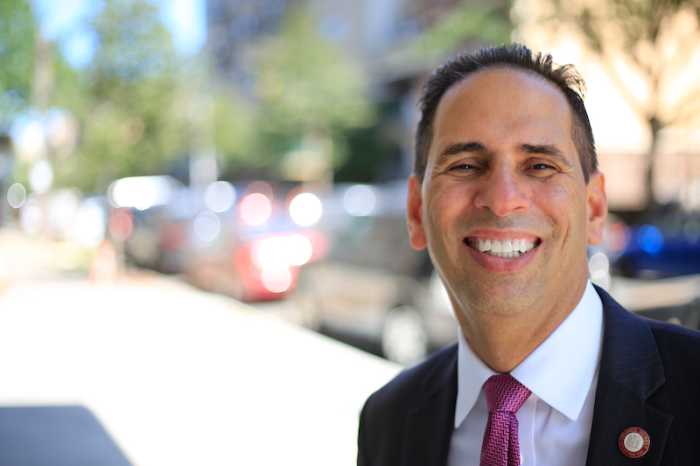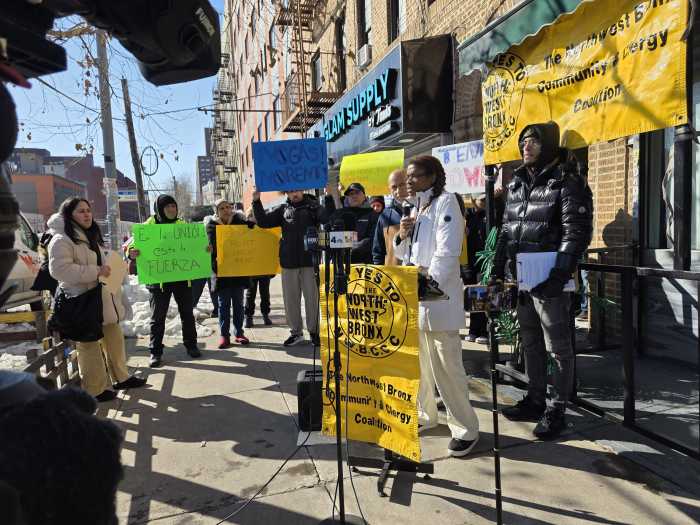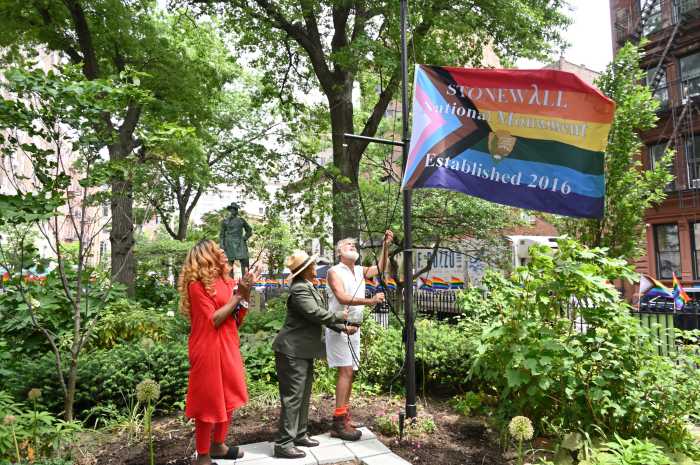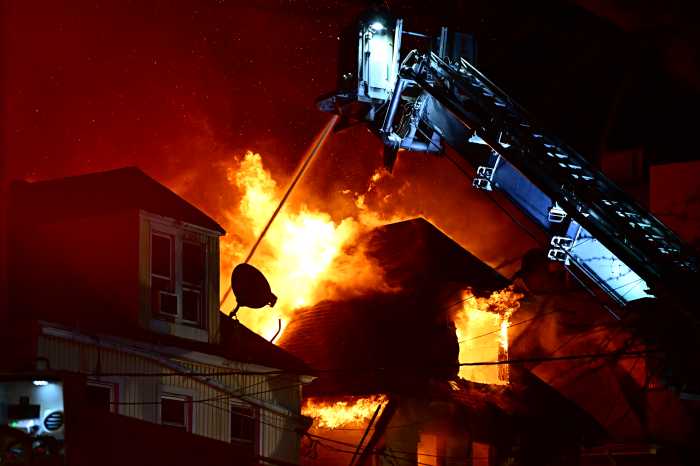U.S. Rep. Alexandria Ocasio-Cortez (D-North-Central Queens, parts of the Bronx) hosted a Census Town Hall in East Elmhurst on Saturday and the takeaway was threefold – there will not be a citizenship question on the census, hundreds of billions of dollars in state funding are at stake, and this will set the precedent for the city and state for the next 10 years.
The event, held at the Louis Armstrong Middle School, aimed to inform the community while also clearing up any misinformation regarding the census.
In addition to Ocasio-Cortez, the town hall speakers included Jeff Behler, Regional Director of New York Regional Census Center, and Julie Menin, the director of New York City Census 2020. Each speaker stressed the importance of it, claiming it to be the most important census yet.
“If our kids aren’t counted, if our families aren’t counted then our schools aren’t going to get the teachers that they need, our infrastructure is not going to get the investment that it requires,” Ocasio-Cortez said. The funding that is at stake for New York includes transit infrastructure, bridges and roads, and hospitals.
“It is such a critically important operation,” she went on to say “It’s really important that right before the census comes out, our entire community knows all of the facts.”
This is especially relevant as fears among community members were exacerbated by the potential addition of a “Citizenship Question.”
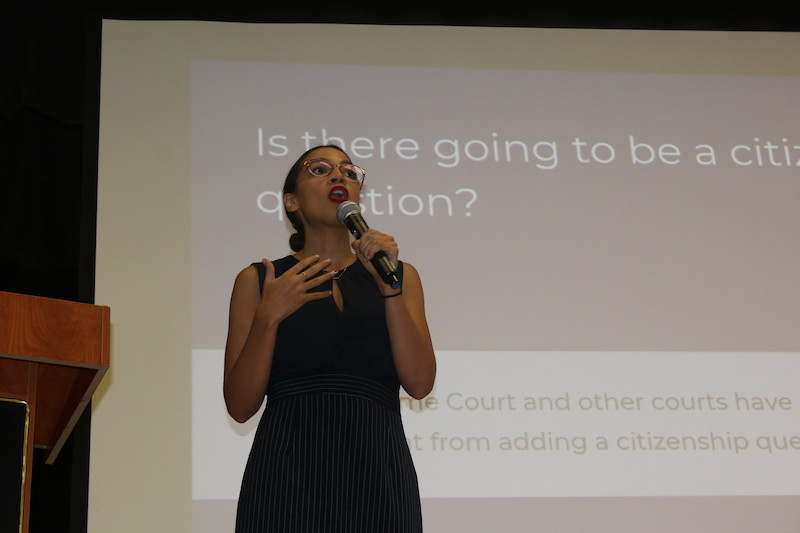
The question, which was attempted to be added by President Donald Trump’s administration, will not be on the census, as was reaffirmed by all the speakers.
“To be clear, the citizenship question is not on the census” explained Menin. “We need your help, we need you to communicate to all of your friends and neighbors that the citizenship question is not on the census because there is a lot of misinformation out there.”
“The census is safe, the census is easy, and the census is important,” proclaimed Behler. Each speaker stressed the safety of the census while also promoting its importance.
The census, which will start on March 12, is especially pivotal in New York because undercounting, when households do not report an accurate number of residents or do not respond at all, in the city and state has been a detriment.
“Undercount happens everywhere and what we found is typically in communities of color, areas where the majority of people are foreign-born,” Behler stated. These communities are especially prevalent in urban centers much like New York City.
Concerns have been raised because census data determine apportionment, the number of representatives a state has in the House, state funding, and local demographics. New York has taken a hit in this regard, losing seats since 1933, going from 45 representatives to 27, as of 2013.
New York had a self-respond rate of 62% in 2010, significantly below the national average of 76%.
“So we can truly understand what our needs are and what resources should be coming into every community across the United States fairly, and the only way it’s fair is if we get everyone counted,” Behler claims.
He put an emphasis on the local aspect of the process. “It really is, we say all the time, that the census is a national event, but if we’re gonna be successful it has to be conducted at the local level.”
Ocasio-Cortez fielded questions from attendees later in the event, after she gave a presentation that explained why the census is important.
A question asked regarded how the census counts non-traditional addresses and what they have done to solve this.
“We know that in Jackson Heights and in Corona there are a lot of, shall we call, creative living situations,” Ocasio-Cortez responded. “What we actually discovered was that over the last two to three years the city has actually gone around and done a count of all of these alternative occupancy situations and they have actually added mailing addresses for these.”


